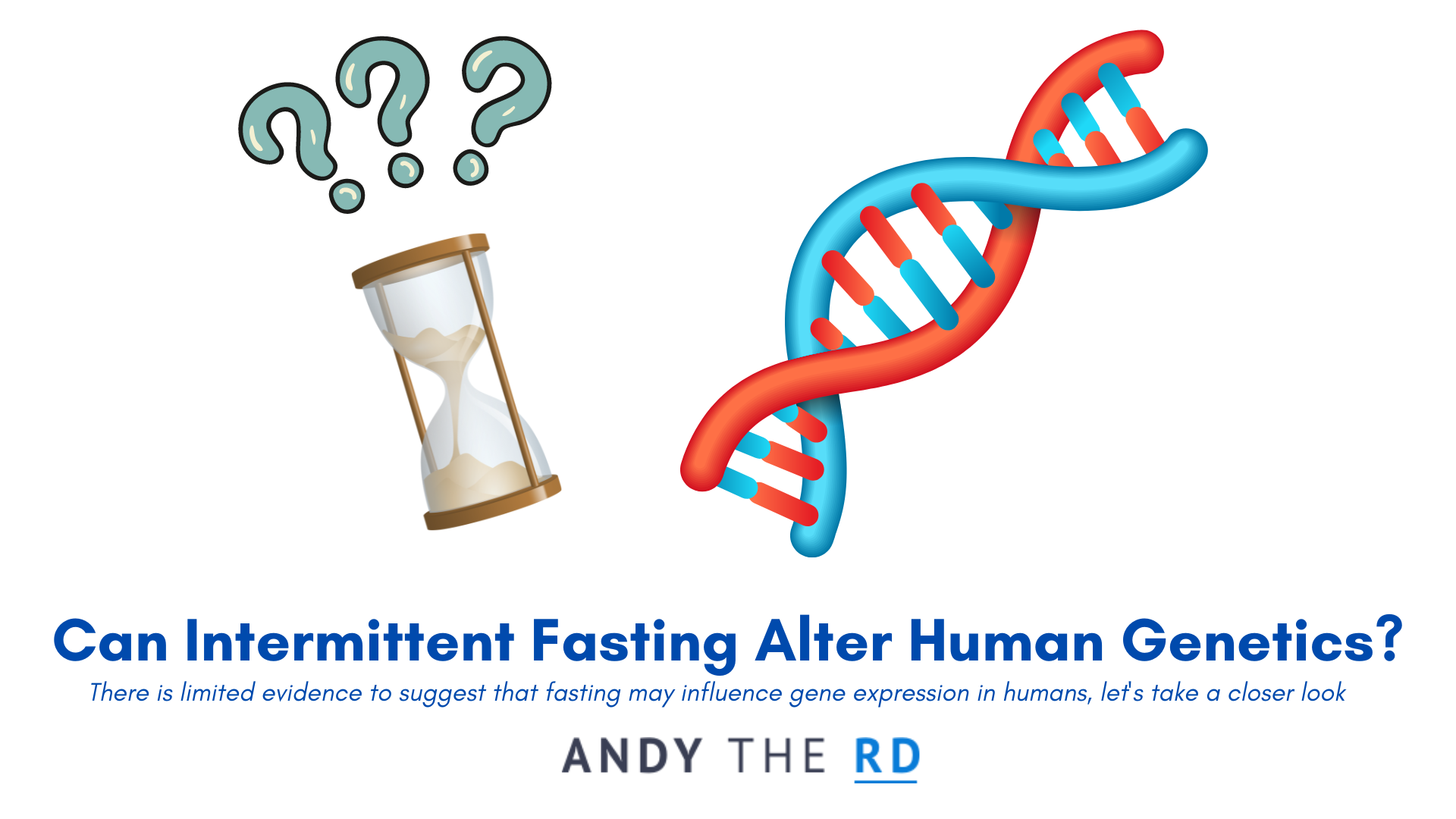While it certainly won’t make you any taller, is there a possibility that intermittent fasting can change the way some of your genes are expressed?
It might.
I’ve made no secret of my personal and professional curiosity with intermittent fasting, having written on the topic previously on numerous occasions.
I also appreciate that public fascination with intermittent fasting is high and it is important to be able to speak about it in an objective manner, acknowledging that the presence or absence of a fasting regimen will never supersede the importance of the actual dietary choices an individual makes.
Theoretical Benefits Of IF
As per a 2019 article out of the acclaimed New England Journal Of Medicine, two of the potential protective benefits of fasting include metabolic switching and cellular stress resistance.
These theoretical benefits result from the switch in energy systems that results from a fast of moderate duration and the theoretical resilience gained at a cellular level by placing your physiology under low levels of stress from the actual act of abstaining from eating for some extended period.
There is obviously quite a bit more to it then that, and I encourage you guys to check out that article to learn more.
In today’s article, as the title suggests, I want to discuss the question of whether or not fasting has the potential to make meaningful changes at the genetic level.
Let’s find out!
Intermittent Fasting & Gene Expression
Now look, I’m not a genetics expert and I’m pretty sure if that you’re reading this you aren’t either.
All good!
For the sake of today’s article I just need you to know that genes are responsible for a lot of what goes on in your body ( they often code for proteins that play a role in metabolism, immunity etc), and certain genes can be stimulated (upregulated) or suppressed (downregulated) based on a number of factors.
According to a 2020 paper out of the Journal Of Proteomics , intermittent fasting appears to be one of them.
This particular study followed individuals who were engaged in 30 days straight of 14+ hour daily fasts ( from Sunset to Sundown) during Ramadan and looked at the levels of gene activity (expression) for key genes associated with immunity, cancer, brain health, metabolism and so on.
A close look at the study, which I encourage, will reveal obvious methodological limitations but it remains insightful to have data suggesting that just 30 days of a moderate intermittent fasting ( more or less equivalent to the standard 16:8 you see pedaled online) can actually lead to measurable changes in genes which may be meaningfully associated with human health and longevity.
Which Genes Were Affected?
They found, for example, a very large downregulation of the APP gene, which creates the protein compromising amyloid plaques often found in the brain of Alzheimer’s patients.
Conversely, they found a very large upregulation of the CFHR1 gene, which may play a role in lipid metabolism ( ie: helping you get rid of cholesterol).
This is just a grossly oversimplified sampling of the variation in gene expression they observed, most of which is very challenging for me to make sense of.
It’s not the only study to make these types of findings either.
A 2015 study out of the Rejuvination Research journal found the SIRT3 gene to be upregulated in those who engaged in intermittent fasting.
The SIRT3 gene codes for a mitochondrial protein that has been associated with potentially protective “anti-aging” effects.
More recent research has also demonstrated intermittent fasting to potentially downregulate the FTO gene responsible for energy metabolism and fat storage.
Final Thoughts
Despite a lack of expertise in the field of genetics, I can’t help but feel intrigued by these types of findings.
While these particular studies prove very little about the long-term protective benefits of fasting, both reinforce the notion that intermittent fasting can indeed lead to potentially meaningful physiological changes that warrant further scientific exploration.
I sense that fasting is a topic of great intrigue among the general public and if you find yourself among that group, I strongly encourage working with a professional like myself to ensure you employ it in the safest, healthiest and most effective way possible and for the right reasons.
Until next time,
Andy De Santis RD MPH



